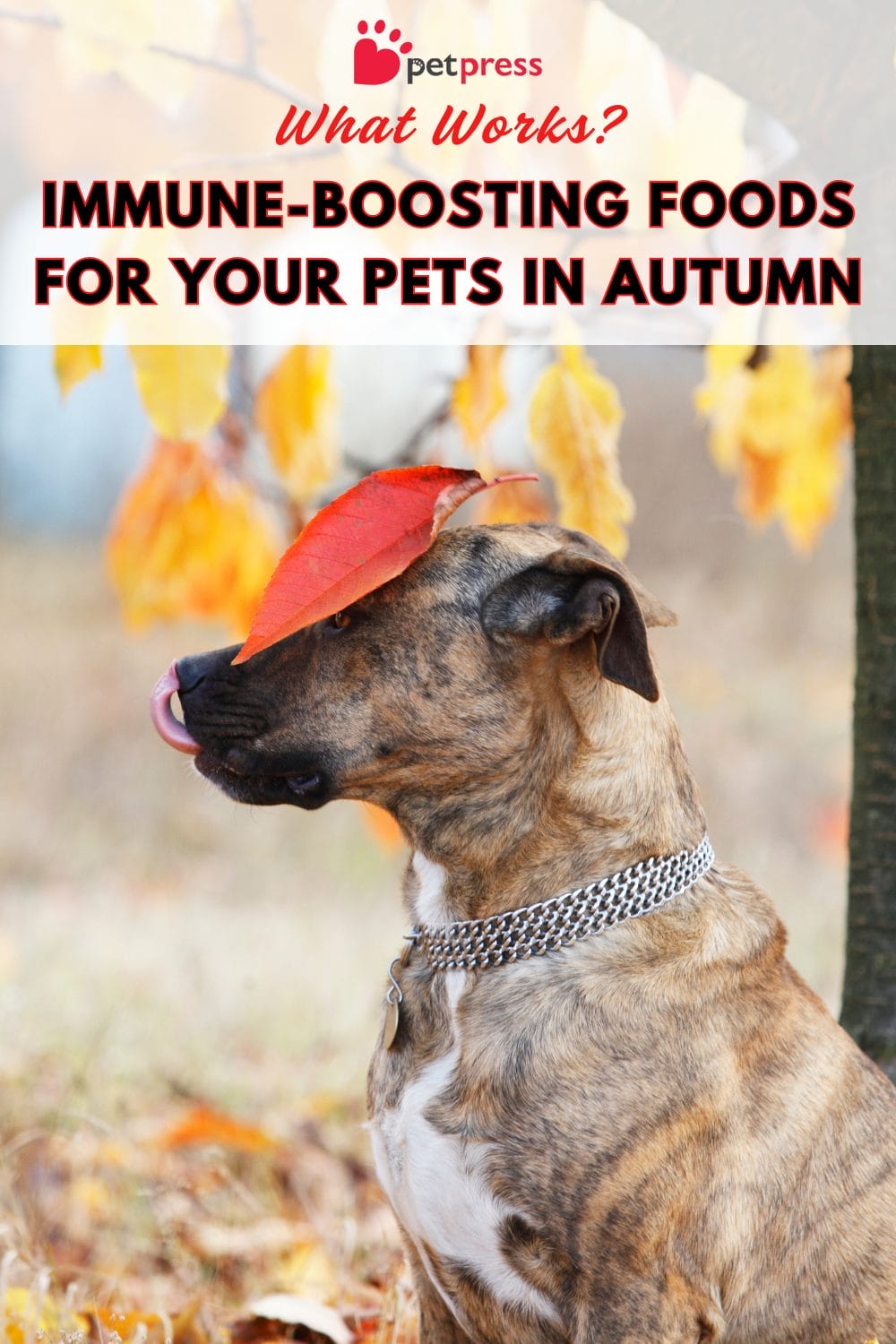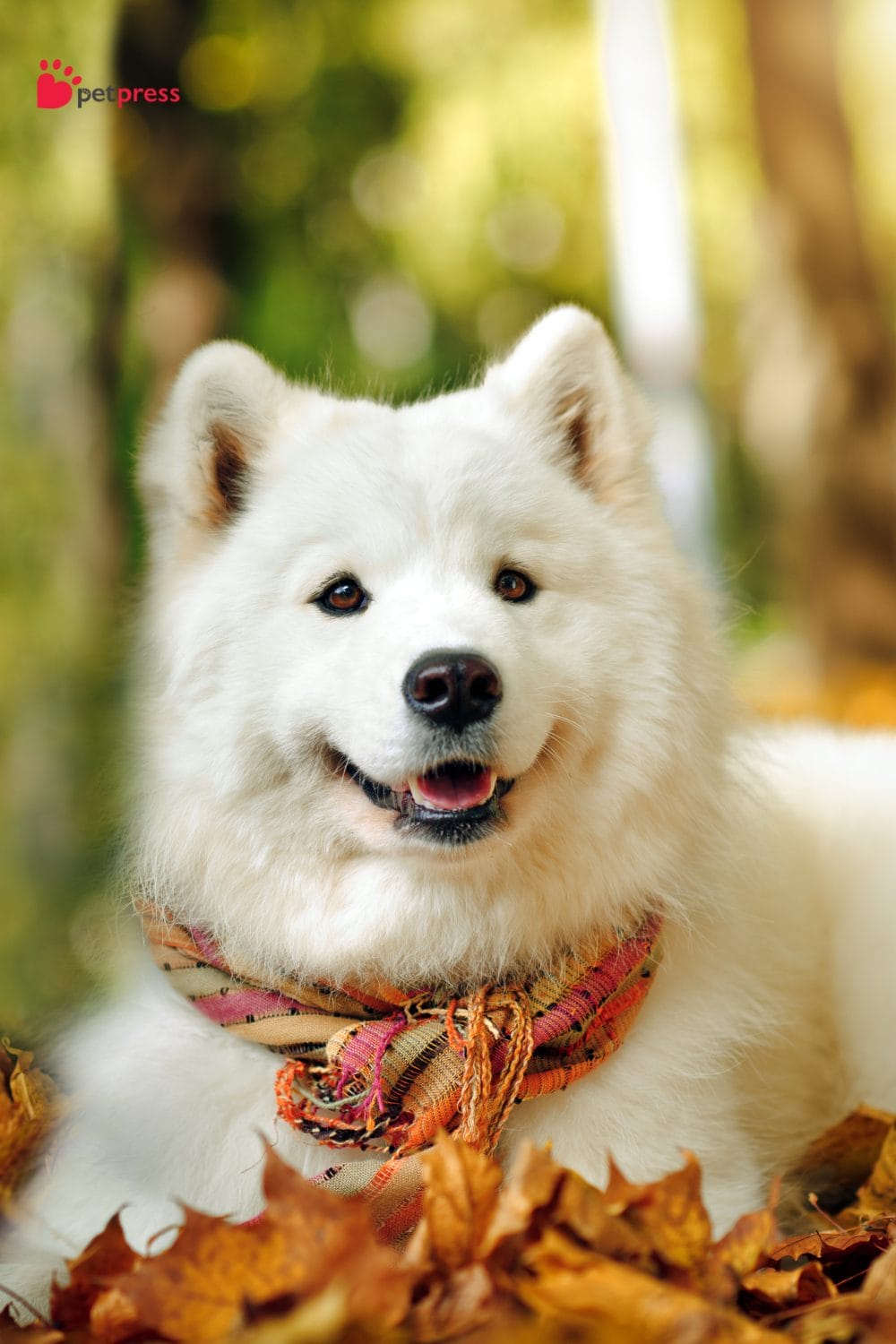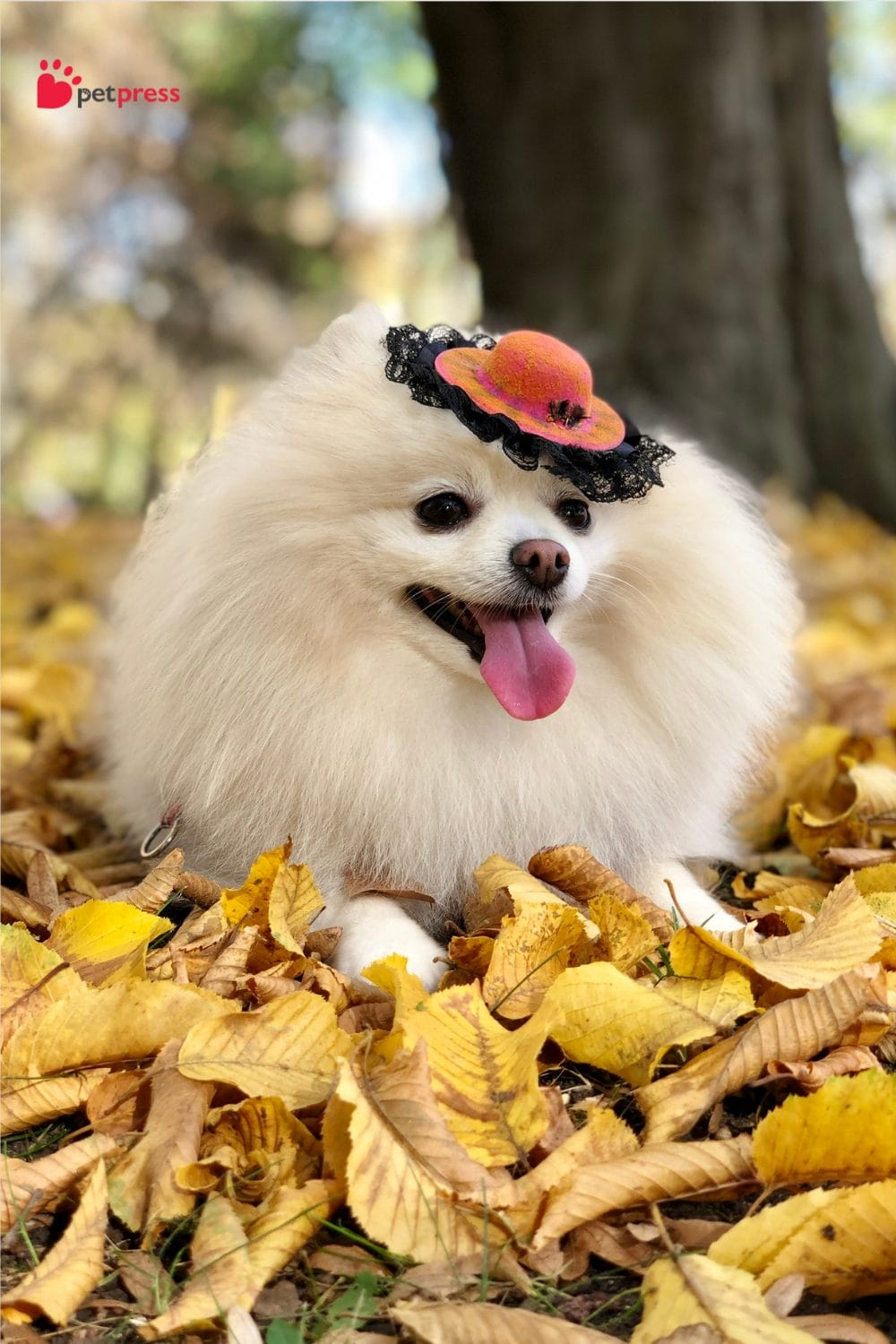
As autumn rolls in, finding immune-boosting foods for your pets in autumn becomes crucial. This season brings cooler weather and less daylight, which can lower your pet’s natural defenses. It’s the perfect time to bolster their immune system with the right diet.
Did you know that a change in weather can affect your furry friend’s health? Just like us, pets can catch colds and feel sluggish as the temperatures drop. Adding certain foods to their meals helps them stay energetic and healthy, even when autumn leaves fall.
Why is a strong immune system important for pets?
A strong immune system is like a superhero for pets. It fights off germs and keeps your pet feeling happy and energetic. Without it, they could get sick easily, especially during the cooler months.
Think of the immune system as your pet’s built-in doctor. It spots harmful bugs like viruses and bacteria and battles them off. This keeps your pet from getting sick and helps them heal faster if they do.
During the autumn, pets face colder weather and new allergens from falling leaves. A robust immune system helps them tackle these changes head-on. It means fewer sniffles and more playful afternoons in the leaf piles.
By boosting your pet’s diet with immune-boosting foods this season, you’re helping their natural defenses stay strong. This care ensures they can enjoy every moment of autumn without a hitch.

Best Immune-Boosting Foods for Your Pets This Autumn
Discover the wholesome foods that can naturally strengthen your pet’s immune system this fall. Keep them healthy and vibrant throughout the season with these nutritional powerhouses.
Fresh Vegetables
Vegetables are essential in boosting your pet’s immune system. They are packed with vitamins and minerals that help them stay healthy and active.
1. Carrots
Carrots are great for your pet’s eyesight thanks to their high vitamin A content. They also boost the immune system, keeping your pets ready for autumn adventures.
2. Broccoli
Broccoli is a powerhouse that supports your pet’s immune system with vitamins C and E. It also provides fiber which helps in keeping their digestion smooth.
3. Spinach
Spinach is rich in iron and vitamin E, which are crucial for a healthy immune system. It’s gentle on the stomach and perfect for pets needing a vitamin boost.
4. Sweet Potatoes
Sweet potatoes are filled with beta-carotene, which helps maintain respiratory health. They’re also a tasty way to add immune-boosting nutrients to your pet’s diet.
5. Peas
Peas are a good source of vitamins B, C, and K, which are vital for overall health.They’re easy to mix into kibble or serve as a fresh snack.
Adding these vegetables to your pet’s diet can provide them with essential nutrients to help them enjoy the season to the fullest. Choose fresh, organic options where possible, and always consult with your vet before introducing new foods to your pet’s diet.
Quality Proteins
Proteins are vital for your pet’s overall health and immunity. Here’s a list of quality proteins that are perfect for your furry friends this autumn:
- Chicken: Chicken is packed with essential amino acids that help build and repair body tissues. It boosts your pet’s energy and immune response.
- Fish: Fish like salmon and sardines are great sources of omega-3 fatty acids. These fats support skin health and strengthen immune function.
- Eggs: Easily digestible and full of nutrients, eggs are a powerhouse of protein. They help maintain a healthy coat and skin.
- Beef: Rich in iron and zinc, beef supports effective immune functioning. It’s also high in protein for muscle maintenance.
- Turkey: Turkey is another excellent source of lean protein. It keeps your pet’s immune system strong and their energy levels high.
Including a variety of these proteins in your pet’s diet can help them stay active and healthy during the chilly autumn months.

Probiotics for Gut Health
Probiotics are like friendly soldiers for your pet’s gut, helping balance the good and bad bacteria. This balance is crucial for a healthy digestive system and overall well-being.
A healthy gut is a key player in your pet’s immune system. It helps fight off infections by keeping their body’s defenses strong and ready.
Pets can benefit from a variety of probiotic-rich foods that boost their gut health. Here are some top choices:
- Yogurt: Plain, unsweetened yogurt is great for dogs and can be added to their meals.
- Kefir: This fermented milk drink is similar to yogurt but with even more probiotics.
- Sauerkraut: Ensure it’s unsalted and free from spices; a small amount can aid digestion.
- Miso: This fermented soybean paste offers a unique flavor and probiotics, suitable for adding into homemade pet treats.
- Soft cheeses: Cheeses like Gouda, mozzarella, and Swiss contain small amounts of probiotics and are usually safe in moderation.
Including these foods in your pet’s diet can help maintain their gut health, which is a cornerstone of a strong immune system.
How to Introduce New Foods to Your Pet’s Diet
Introducing new foods to your pet’s diet needs to be done with care to avoid any digestive upset. Start by mixing small amounts of the new food with their regular meals. Gradually increase the new food while decreasing the old over a week or so.
Tips for Mixing New Foods with Regular Meals
- Start Small: Add a little of the new food to their usual diet, and watch how they react.
- Gradual Increase: Slowly increase the proportion of the new food over several days.
- Monitor Reaction: Keep an eye on your pet for any changes in behavior or digestion.
Introducing new foods also means watching for allergies. Signs of allergies in pets can include itching, digestive upset, or respiratory issues. If you notice any unusual symptoms after introducing new foods, consult your vet immediately. This careful approach helps ensure that dietary changes benefit your pet without causing harm.
Cooking Tips to Retain Nutrients
- Low Heat Cooking: Use methods like steaming or baking at lower temperatures to preserve vitamins.
- Avoid Overcooking: Keep cooking times short to maintain the integrity of proteins and other nutrients.
- Use Fresh Ingredients: Opt for fresh, organic ingredients whenever possible for the best health benefits and flavor.
These treats not only boost your pet’s immune system but also provide a delightful snack they’re sure to enjoy. Plus, making them yourself gives you control over what goes into their diet, ensuring only the best for your furry friend.

Conclusion
As we’ve explored the array of immune-boosting foods for your pets in autumn, it’s clear that a little change in their diet can make a big difference. From crunchy carrots to probiotic-rich yogurts, each food brings its own set of benefits to help your pet navigate through the colder months with vigor. Remember, these foods not only enhance your pet’s immune system but also add a delicious variety to their daily meals.
This autumn, why not take the opportunity to introduce some of these nutritious options into your pet’s diet? Start small, watch for any reactions, and gradually make these health-boosting foods a regular part of their diet. The joy of seeing your pet healthy, energetic, and happy is truly rewarding.
So, let’s make this season a time for strengthening our pets’ health, ensuring they have all they need to enjoy the crisp autumn days. Your furry friends rely on you, and with these simple dietary adjustments, you can ensure they remain at their best. Give these ideas a try and see the difference in your pet’s health and happiness!
FAQs
Carrots, broccoli, chicken, fish, and probiotic-rich foods like yogurt are excellent for boosting your pet’s immunity in cooler weather.
Keep an eye out for symptoms like itching, digestive upset, or swelling. If you notice any of these after introducing new foods, consult your vet.
While plain, unsweetened yogurt is safe for many pets, always start with small amounts. Check for any adverse reactions, especially in pets with lactose intolerance.
Yes, avoid onions, garlic, and chives as they can be toxic to pets. Always consult a vet before introducing new vegetables to your pet’s diet.
Cook the fish thoroughly without any added oils or seasonings. Ensure all bones are removed to prevent choking or internal injuries.
- Does Cat Litter Melt Ice? The Complete Guide to Winter Safety - January 30, 2026
- Happy Tail Dogs: Understanding This Common Canine Condition - January 29, 2026
- How Cold Can Outdoor Cats Handle? Feline Winter Safety - January 27, 2026


GIPHY App Key not set. Please check settings